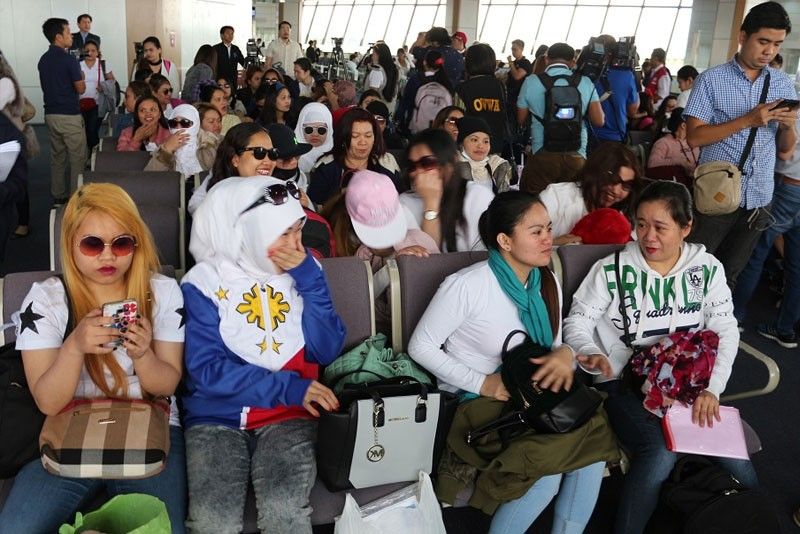Lawmaker calls for total OFW deployment ban to Kuwait

MALASIQUI, Pangasinan, Philippines — After another Filipina household service worker was allegedly raped by a Kuwaiti police officer, reelected Pangasinan third district Rep. Rose Marie Arenas has called for a total ban on the deployment of overseas Filipino workers (OFWs) in the Arab country.
“I condemn, in the strongest possible terms, the unabated series of barbaric abuses and senseless killings of our (OFWs) in Kuwait, which we have silently, cowardly and unconscionably taken for granted for more than two decades,” Arenas said in a privilege speech last June 3.
She also told her colleagues in the House about Constancia Dayag, 47, whose body arrived from Kuwait last May 14.
The suspect Fayed Naser Hamad Alajmy, 22, has a standing warrant of arrest. He had assisted Dayag in finger scanning registration at the airport in Kuwait. Reports said Alajmy kidnapped Dayag and assaulted her.
“The past years taught us the unimpeachable lesson that every OFW deployed in Kuwait faces an uncertain future. The fact of the matter is, the laws of and the culture in Kuwait does not provide, nor accept the need for, enough protection for our household service workers,” she said.
Arenas added that the atrocities have become a national emergency because almost 90 percent of OFWs deployed in Kuwait are household workers, all of them women.
She noted that the Department of Foreign Affairs reported a total of 47 OFW deaths in Kuwait in 2013.
Citing an Overseas Workers Welfare Administration record, Arenas said a total of 196 OFWs have died in Kuwait since 2016, with almost 79 percent of the deaths due to physical abuse.
“Despite the significant contributions of our OFWs over the years, there is still no single agency in the government high enough to be on a department level that attends to their needs,” she said.
Arenas maintained that OFWs in Kuwait suffer harsh working conditions in its kafala system.
Under the kafala, employers or sponsors act like the owners of migrant workers. They hold the passports of the workers, who are not allowed to go out freely.
“The kafala system treats our OFWs as slaves and as properties; hence the widespread inhumane and sexual proclivity of many Kuwaitis against our helpless OFWs,” Arenas said.
“To be treated a slave is inhuman,” the lawmaker said, “but what would be worse is to be considered as property, one whose reason for being is reduced to serving solely the pleasures of the owner.”
- Latest
- Trending




























